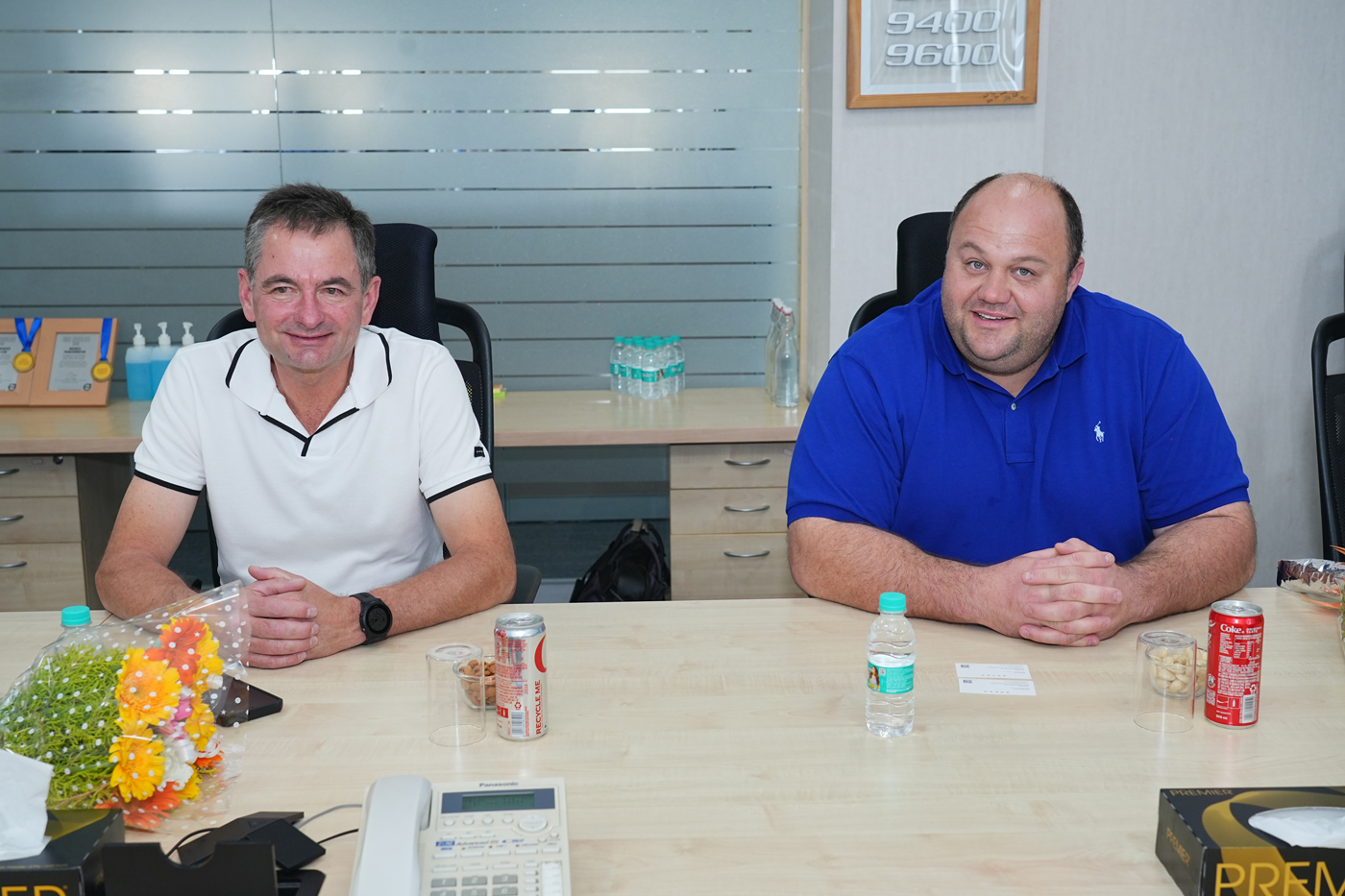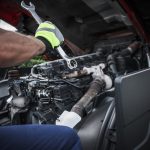The power of partnerships
The power of partnerships
Collaborations between original equipment manufacturers and bus and coach operators are crucial when it comes to improving road safety, increasing uptime, and enhancing customer satisfaction, yet they are somewhat rare. CHARLEEN CLARKE meets with Intercape and Volvo Bus Southern Africa – and discovers that these two companies are truly realising the power of partnerships.
Stephan Hamman, Intercape chief operational officer, was eight years old when the company took delivery of its first Volvo coach – a B12R. At the time, Intercape was owned and run by his grandfather, Johan Ferreira senior, and by his uncle, Johan Ferreira junior .
“I will never forget that day, it was so exciting! That Volvo was like a spaceship – it was so full of technology. I still remember the electronic gearshift and the ECU. Back then, we were stuck in the old days here in South Africa, and then Volvo came into the country with all this technology. It was a fabulous moment to see first world products in South Africa!” he recalls.
Fast forward to 2024, and Intercape’s fleet of around 235 vehicles is populated with Volvo coaches. This, in itself, isn’t particularly unique; there are lots of Volvo operators all over the world. What is unique, however, is the extremely close partnership between Intercape and Volvo Buses. This is not a typical supplier/customer relationship – far from it! The connection is much deeper…
This is no coincidence, as Hamman believes that partnerships pay dividends. So too does Leon Nelson, director of Volvo Bus Southern Africa. He was a bus operator for 25 years before joining Volvo in 2018 and during that time he grew to realise the power of partnerships. “Over the years as a bus operator, working with different original equipment manufacturers (OEMs), I realised the importance of relationships – and that a relationship is not about supply and demand. It’s very easy to pick up the phone and order a bus. Similarly, delivering it is relatively easy. The really challenging part is what happens after that,” he points out. “What about the commitment after the order has been fulfilled?”
A new coach can easily cost many millions, and it is typically on the road for eight to 10 years. “So, when an operator buys a coach, he’s making a commitment of eight to 10 years with the OEM. That operator needs to trust in his chosen OEM, knowing that the appropriate service will be provided for those eight to 10 years,” notes Nelson.
The commitment doesn’t just come from the OEM. It needs to come from the operator too, as he explains: “Intercape is Volvo accredited. This only came about because Intercape showed commitment. They invested in the right infrastructure, and they sent their technicians to Volvo for training, for instance.”
Once both parties have made the commitment, the partnership starts. As is the case with most good partnerships, it is reciprocal. “We both understand the ultimate desired objective: for an operator to have the vehicle on the road for as long as possible. Uptime is crucial for revenue, which in turn drives profitability. As an OEM, we need to do everything possible to make that happen,” emphasises Nelson.
Hamman concurs, explaining that Intercape has three overriding principles: safety, dependability, and affordability. However, the company can only live up to these principles with the support of three parties: its people, its financial partners, and the OEMs.
“The OEM is one of the most important pillars, because without a bus we cannot deliver a reliable service to the public of South Africa. For us, it’s really important to have a partnership with an OEM that has the same vision and mindset. If you don’t have that, you’re really in for a tough time. Furthermore, that OEM needs to share the same values of delivering a safe, dependable, and affordable service,” he explains.

According to Hamman, an OEM can make or break his business. “When we have a good partnership with a company, such as we have with Volvo Buses, we get the support when we have a breakdown. Uptime is one of the most important things in our business and is directly attributable to the OEM. If we sit with a problem that they cannot fix, we have a huge problem and, at the end of the day, we’re losing money.”
The potential issues extend beyond financial considerations, however. “Money is one thing, but this is also about the people who want a service that we cannot deliver without OEM support. Hence, it’s vital to have a great relationship with your OEM – and to share the same mission and vision,” Hamman stresses.
Accordingly, he doesn’t adopt the same approach as many other operators, who extract as much as they possibly can from the OEM. In those instances (all too common in our industry, it must be said), there’s no hint of a partnership; the operator views the OEM as a supplier and demands rock-bottom prices coupled with faultless service. It’s a real “one-way traffic” scenario…
Hamman says that this approach cannot possibly work. “When an operator acts in this manner, they may negotiate low prices, but the OEM will only do the bare minimum. There will also be no mutual respect or trust – and then you’re dead in the water because any relationship without respect and trust doesn’t work.”
Nelson could not agree more. “Trust is so important. So too is mutual respect. In terms of the Intercape and Volvo partnership, we respect each other, we trust each other, and we take ownership on both sides,” he says. “This is all about a win-win scenario. Of course there are some less than perfect times. Some days the OEM will lose and some days the operator will lose, but ultimately it must be a win-win for both parties.”
According to Hamman, that is exactly what is transpiring in the relationship between Intercape and Volvo Bus Southern Africa. “The partnership works for us both. I’m really happy to say this because, while a coach is generally used for between eight and 10 years, it’s sometimes in service for much longer than that: we can push that up to 20 years,” he reveals. “Hence, the relationship between the two companies is extremely important.”
And this relationship is definitely about more than just buying and selling buses or coaches. “Volvo can proudly say that it supplies Intercape in South Africa. I know that we are a drop in the ocean in terms of the worldwide economy and scale, but on South African soil, we are the biggest in terms of intercity. In a similar vein, we are an ambassador for Volvo; we’ve got an option to buy anything else – there are lots of other products out there. But we want to be an ambassador for Volvo because of the friendship and partnership we share with the company,” says Hamman.
Now, how many OEMs have customers that make statements like that?
Published by
Focus on Transport
focusmagsa




